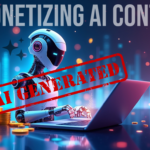Humanity has always been intrigued with the concept of death. This fascination has led to attention towards death calculator with the evolution of the AI. Life expectancy ‘calculators’ powered by AI have emerged which now analyze the dataset for health, lifestyle, genetics, and environment. But what is the precision of these calculations? And does such technology bring about ethical concerns?
In this exhaustive guide, we delve into the workings of AI life expectancy calculators, which include death calculators, as well as their advantages, disadvantages, and prospects.
How Does It Work?
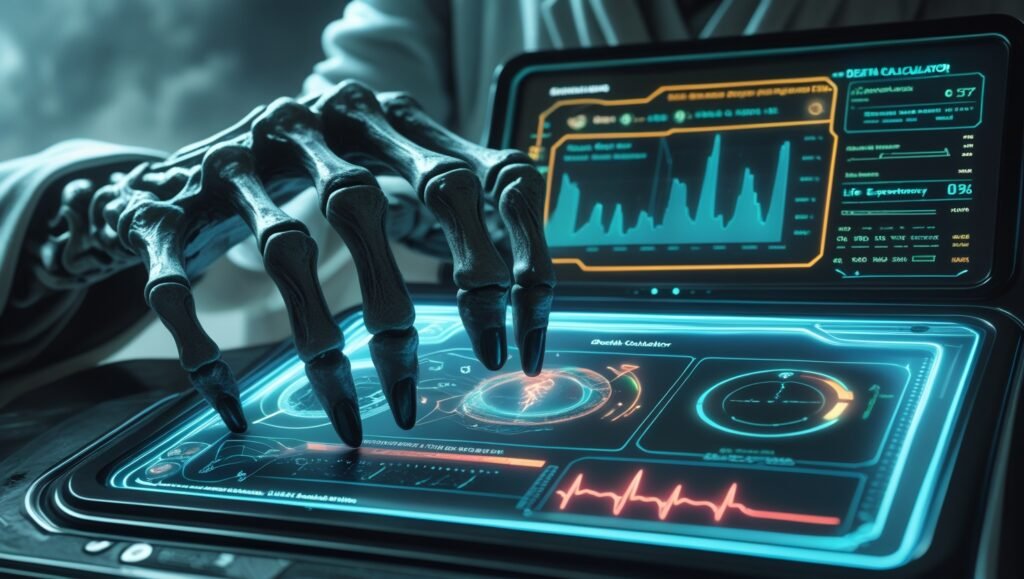
A death calculator is capable of forecasting a person’s life span while taking into account statistical information, AI modeling, and machine learning algorithms. These frameworks assess the health parameters, behavior, and worldwide mortality rates to give an estimation on an individual’s life span
Description of the Process
Information Gathering:
The AI consolidates information like age, gender, medical records, hereditary data, and lifestyle choices from various sources including medical files, wearable technology, and self-reported data.
Understanding Through Machine Learning:
This anticipates death instead of life, death being easier to pinpoint through instance recognition. It uses deep learning algorithms to assess historical data for patterns pertaining to death while employing instances of similar cases and dissociative interactions in health.
Predictive Analysis:
This technology poses risks, benchmarks them against a profile and predicts lifespan. Some advanced models utilize new information to automatically rescore and refine their estimates over time.
Personalized Insights:
A sophisticated approach is being taken by several death calculators which, apart from indicating life expectancy, actively recommend health safeguarding measures to mitigate risk factors and enhance life.
Factors Considered in AI Death Calculators
Health and Medical History
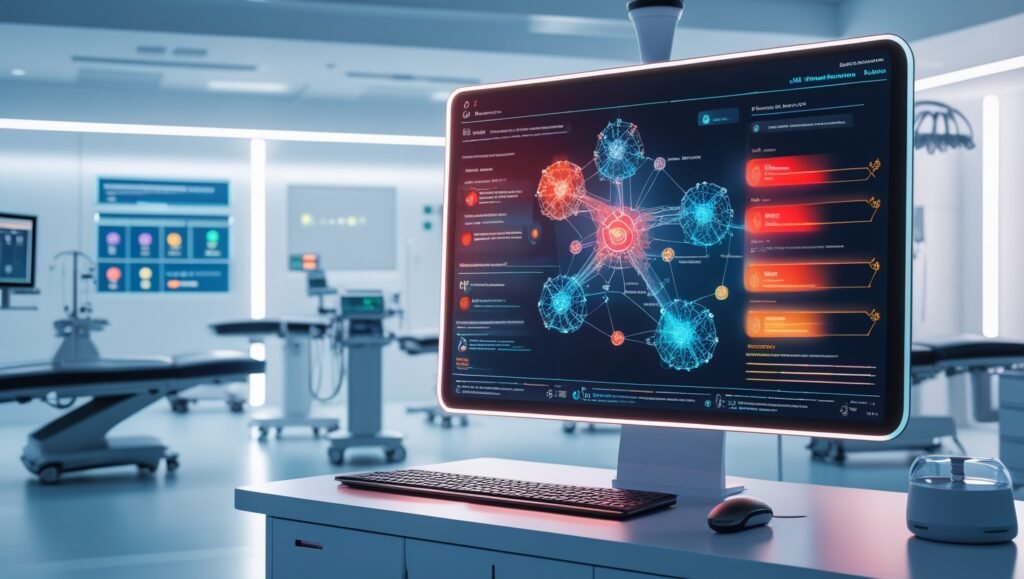
Perhaps the most relevant aspect of considering a person’s historical health records is trying to predict their lifespan. The AI examines:
- Existing conditions like Diabetes, Hypertension, Cardiovascular conditions, Cancer, etc.
- Any major procedures done in the past including surgeries and stays in hospitals.
- Ongoing treatment compliance through medications.
- Biomarkers including Blood Sugar, Cholesterol Level, Blood Pressure.
AI is capable of offering advanced warning strategies from both chronic illnesses analysis and real-time information derived from remote health monitoring systems.
Lifestyle Choices

The considered lifestyle significantly impacts the lifespan. For consideration AI goes for or focuses on:
- Proper meal and nutrition (energy intake, food groups ratios, intake of fast foods)
- Regular exercise and its periodic intensity
- Quality of sleep and its daily cycle rest period stability
- Use of substances (cigarettes, liquor, drugs)
- Self-care and wellness activities.
Additional life skill users make when users are particularly active or make special note on exercise like walking more, eating from better places, or helping him stop smoking will award him extra years to live.
Genetics and Family History
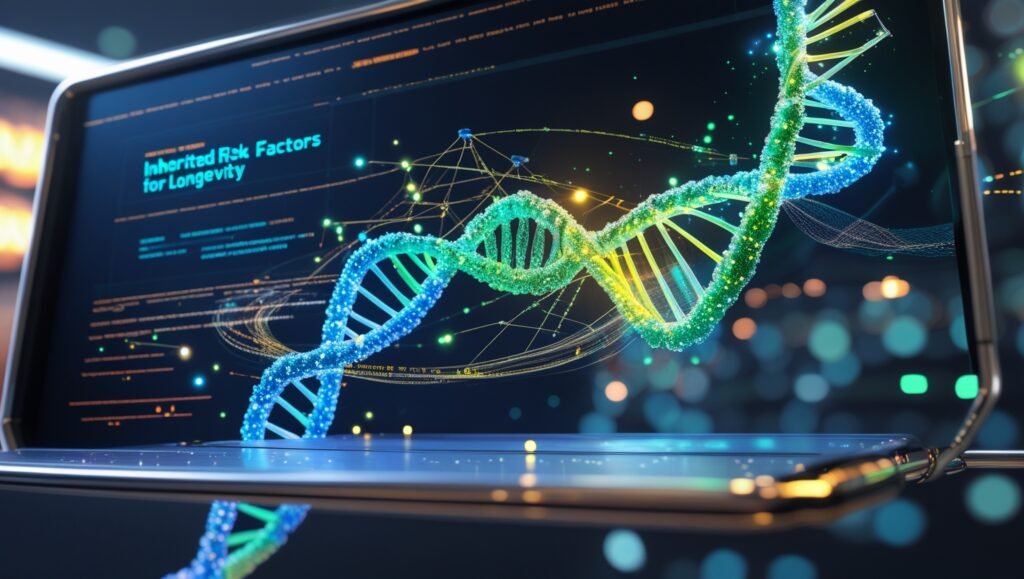
Some genetic risks are a determinant of longevity. Analysis done by AI looks at the following:
- Family relations with d severe diseases – cancers, Alzheimer’s, heart problems.
- Lifespan of remaining relatives
- Family genetic markers identified in the DNA tests.
Since AI has the capability to associate one’s genetic information with massive genomic databases, it can estimate the chance of health problems a person might end up with and plan interventions like more thorough examinations in a young age.
Environmental Factors
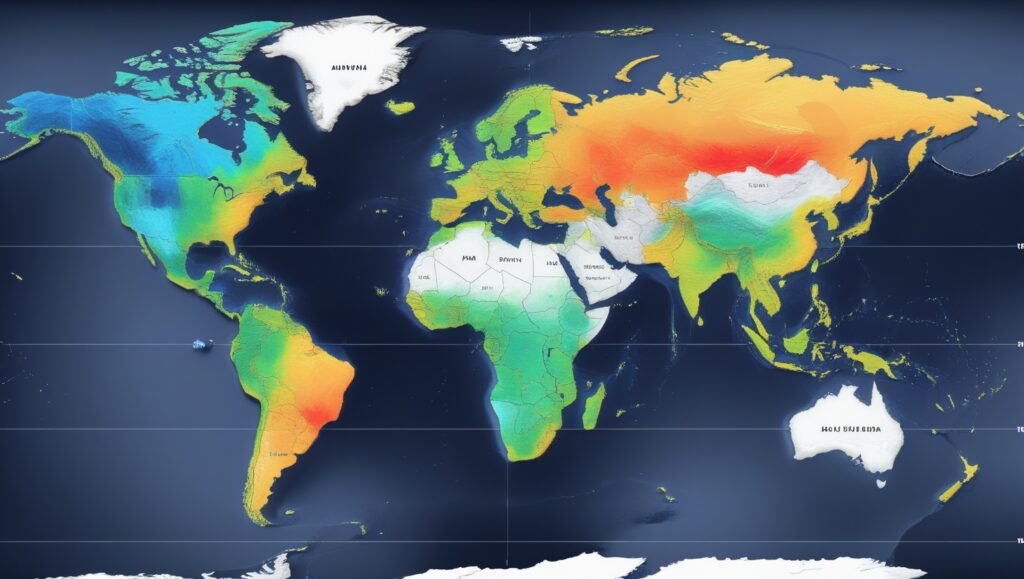
Other aspects affecting life span are the following:
- The existence of impurities and level of air pollution
- Social class and ability to easily access medical services
- Weather patterns and environmental hazards such as harsh weather conditions
- Family and friends who contribute to better health and reduced stress
AI combines environment information about the entire world with the user’s data in order to make a more calculated guess about how many years he can expect to live.
Advantages AI Powered Death Calculators
Preventative Healthcare

One of the greatest advantages stemmed from AI death calculators is the ability these machines possess to foster preventive healthcare. Identifying risk factors at the earliest stages greatly increases the chances to make adjustments in one’s life that can, at the very minimum, prolong their lives. AI can recommend:
- Keeping up with medical appointments along with tests
- Custom exercise plans appropriate for the user’s body
- Changes in diet if needed for proper nutrition and health supervision
Insurance and Financial Farming

Few insurance companies do know how to profit from AI foretelling. Customers, on the other hand, will love saving when everything works. Being provided with a prospective age can allow users to:
- Improve when and how pension funds are withdrawn and investments are made
- Acquiring long term health care insurance if needed
- Better management when it comes to estate planning
Individualized Health Advice
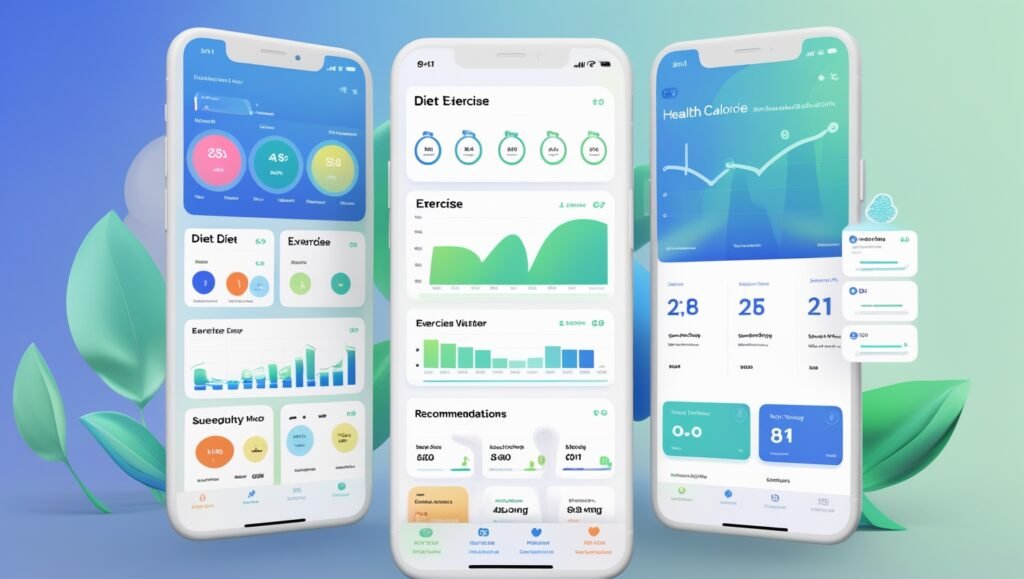
AI does more than just estimate how long one is capable of living. It offers AI Tools tailored well-being plans based on the individual’s medical history, genetic factors, and other conditions under which the user lives.
Ethical Concerns and Risks

Privacy and Data Security
The facilitation of sensitive personal information opens the discussion of security and misuse. Sensitive personal information must be dealt with proper care by AI systems in ways such as:
- Data encryption with great strength
- Transparent manner of policies regarding data
- AI ethical usage legislation on frameworks and principles
Psychological Impact
Providing someone an algorithm which works as an insight towards estimating one’s lifetime could cause havoc and anxiety or stress of any kind
Possible Discrimination
Healthcare and insurance AI models may have some discriminatory biases that affect specific groups of people.
Future of AI Death Calculators

In the future, the AI death calculators may utilize biometric information, such as DNA sequencing, collected through wearable devices to provide real-time and more accurate predictions on when one would die.
Here are some other creative ideas:
- Real-time health tracking through AI with immediate alerts to any potential danger.
- AI driven altering of genes to guarantee longer life.
- Better privacy and ethical regulations to eliminate the irresponsible use of life-ending estimates.
Online tools referred as “death calculators”
There is a multitude of online services known as “death calculators” that claim to predict life expectancy based on various criteria. Below are a few of them:
The Death Clock: This calculator uses the following fields: date of birth, sex, smoking habit, BMI, and documented country for predicting death date.
Death Timer: This calculator estimates life expectancy from date of birth, gender, country and lifestyle choices like smoking and drinking using data from the CIA, FBI, and UN.
Social Security Administration’s Life Expectancy Calculator: This government tool uses sex and date of birth to determine how many extra years one could potentially live.
Keep in mind that these calculators are based on statistical estimates and therefore, do not provide certainties.
Conclusions

The AI artist formerly known as the death date calculator represents a bold yet threatening technology. It can aid with healthcare management and optimally allocating personal resources while simultaneously threatening sensitive issues like privacy, psychological wellbeing, and discrimination.
These innovations, like any other, require careful planning and implementation so that they can harness aid while fulfilling moral scrutiny.





